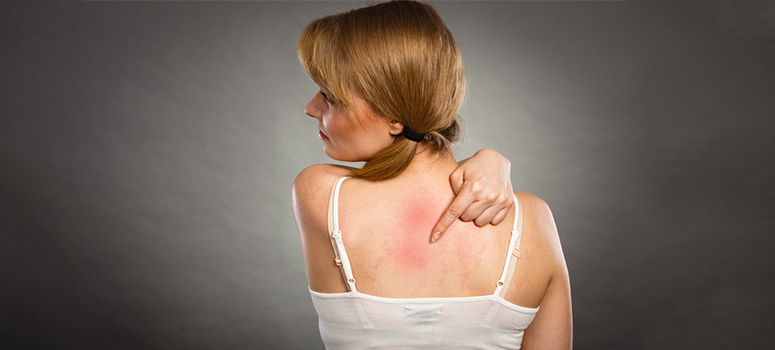Sunlight is vital for our overall well-being. It’s a prime source of vitamin D. Can exposure to sunlight be harmful? Yes, individuals who are allergic to sunlight can experience severe inflammatory reactions upon brief exposure to the sun.
If you experience discomfort immediately after stepping out under the intense sun, you need to read this blog. Also, if you are prone to sun allergy, here are the precautions you need to take to reduce inflammation, clinical treatments to ease symptoms, and lifestyle measures to prevent dermal issues.
Solar Urticaria: Overview
Most of us have experienced allergic reactions like red, hot build-up on the skin. Clinically known as urticaria, it looks like hives. After brief exposure to sunlight, some individuals experience the same, also known as solar urticaria.
Such patients develop allergic reactions (intense itching, physical discomfort) and the appearance of hard lumps of skin with a burning sensation. Sun-related allergy is a rare clinical condition with less than 700 recorded cases globally. It’s rarely harmful if individuals at risk stay away from sunlight.
Solar Urticaria: Symptoms and How to Recognise It
Unlike normal allergic reactions, sun allergy occurs immediately after your skin stays exposed to a couple of minutes of direct sunlight. Visible symptoms include:
- Redness of the epidermis
- A sudden feeling of unexplained warmness
- The appearance of hard patches on the skin
- Extreme itching tendency
- Breakout of rashes on the skin exposed to the sun
- Irregular breathing
- Low blood pressure
- Blister formation that doesn’t disappear in a while
Most sun-related allergic symptoms disappear after a short while when away from the sun. However, patients with sensitive skin can experience long-lasting symptoms. It may worsen into serious health issues without adequate or immediate clinical attention.
Prone to Skin Problems in Summer? Find out What Causes It!
Patients may become allergic to sunlight if they have pre-formed dermal issues or are under drug therapy that reacts upon sun exposure. Summer is not friendly for individuals having sensitive skin. It’s worse for those prone to sun poisoning when experiencing abrupt allergic reactions under the sun.
Dermatologists are yet to find out what exactly triggers allergy to sunlight. Potential causative agents include:
- Hereditary history of sun intolerance
- Chronic skin issues like dermatitis, eczema or rosacea (turns worse upon exposure to sunlight)
- Allergy upon applying skin products
- Side effects of sun exposure after recent surgery (plastic or reconstructive surgeries are prone to sun intolerance)
- Skin reactions from taking certain antibiotics or topical reactions from skin-related medications
- Climatic conditions (locations with intense UV-index are more prone to trigger sun-related problems)
How to Treat Solar Urticaria Like Skin Problems in Summer?
Patients allergic to sunlight require clinical care besides following a preventive lifestyle to reduce triggering symptoms. When you visit a physician or a specialist dermatologist, you’ll undergo a diagnosis to measure the extent of damage caused to your epidermis.
You can expect topical and drug-therapy treatment to reduce solar exposure to embalming the affected skin. Treatments include:
- Topical products like cream, lotions containing cortisone and corticosteroids (these have anti-inflammatory properties that reduce itching and provide gradual relief)
- Prescription or OTC drugs like montelukast, levocetirizine, and fexofenadine have powerful anti-histamine properties. They act on the skin receptors to reduce their sensitivity and arrest the immunity-based responses to lower the worsening of the affected skin surface.
- Undergoing light therapy is an effective method to tune your skin tone with natural sunlight.
- A controlled exposure using UV lamps helps your skin cells to become tolerant of brief sunlight exposure without showing adverse reactions.
Prone to Sun Allergy? Try These Clinically Approved Preventive Tips from Dermatologists
Preventive lifestyle is second most important after clinical care to counter most types of skin allergy. Here’s how to counter sun exposure to reduce allergic reactions:
- Don’t step out in the heat of the sun without an umbrella
- Apply SPF 40 based sunscreen and moisturizing lotions
- Wear protective clothes (full-sleeve and light-colored)
- Abstain from going out between 11 a.m. to 3 p.m. during summer (UV intensity lies at its peak)
- Do not use skin products or cosmetics without a compatibility test (may trigger allergy if applied without a skin test)
- Consult a dermatologist or your family physician if experiencing drug-related allergies
Summary
Solar urticaria is a treatable skin issue. Unlike most skin infections, it stays limited to sun exposure. Dermatologists list it amongst the rarest types of skin allergies, meaning very few people are prone to develop it.
Individuals who can’t tolerate sun exposure can switch to locations with temperate conditions or best follow a preventive lifestyle to control sun poisoning. If you are intolerant to sunlight or experience frequent inflammation under the sun, visit Skin and Hair Academy to learn about sun allergy treatments. If you want to know more about skin problems in summer, you can consult a dermatologist close to you.














